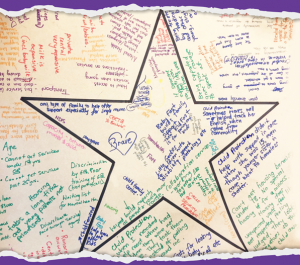
Children and young people from disadvantaged families and those who are at risk of abuse and neglect have spoken out about how they can be better supported to improve their safety and wellbeing.
A new report, Keeping Kids Safe and Well – Your Voices, from the Australian Human Rights Commission is a collation of voices of children and young people and their families across Australia who were asked what they need to be safe and well, and what makes it hard to get help when they need it.
Led by Australia’s National Children’s Commissioner, Anne Hollonds, over 800 children and young people and their families shared their insights and personal experiences to help inform the action plan for the National Framework for Protecting Australia’s Children 2021-2031 – a 10-year framework on how governments and sectors can improve outcomes for children and families experiencing disadvantage or who are vulnerable to abuse and neglect.
The National Framework aims to improve the lives of children, young people and families in the following priority groups:
- children and families with multiple and complex needs
- Aboriginal and Torres Strait Islander children and young people experiencing disadvantage or who are vulnerable
- children and young people and/or parents/carers with disability experiencing disadvantage or who are vulnerable
- children and young people who have experienced abuse and/or neglect including children in out-of-home care, and young people leaving out-of-home care and transitioning to adulthood.
Throughout the three-month consultation period held last year, the top three things children, young people and families said they need for children to be safe are:
- help with housing
- mental health services
- help with basic needs, like food, clothing, transport, and school supplies.
In the report it was noted that ‘many children and families said it can be hard to find the help they need and sometimes the right help isn’t there for them. They emphasised the value of more co-ordinated ‘wraparound’ services and service providers whom they can trust’. They also stressed the ‘importance for governments to listen to them and their families when making decisions about services and policies that affect them’.
A lack of support was high on the list for children and young people in care and detention. Here is what some of the children and young people in care and/or detention said about what they need to be safe.
What children and young people in care said…
Children and young people living in out-of-home care said they needed more support to be safe while in care. Some said they didn’t feel that their carers understood what they were going through and didn’t provide enough help, especially with their mental health. Others said they wanted ‘more of a say in decisions that affect them and acknowledgement and support for the particular challenges they face’.
Young people who were transitioning out of care said they needed more ongoing support, for example with housing and money, and training and employment well beyond the first few months after leaving care.
Many carers, especially kinship carers, also wanted more help, ‘including to make sure the children they care for who have disabilities have the help they need’.
What young people in youth detention said…
The young people in youth detention who were part of the consultation said they wanted access to education and employment and to be financially independent. They said ‘getting a job was key to them being able to stop doing crime’.
The Aboriginal and Torres Strait Islander children and young people in youth detention who voiced their insights said they want to ‘make [their] family proud’ and have ‘money, houses, jobs [and] support for [their] families’. They also said ‘most kids who go to jail come out and do the same thing because there is no support’. For this overrepresented group, they also said ‘doing culture’, ‘the love of family’ and ‘going on Country’ made them feel safe.
One young person in detention noted that ‘minorities don’t have much of a voice and that they need more opportunities to tell the untold stories, not just the bad side’.
To read more about what the children and young people said, including the report’s recommendations, read the Keeping Kids Safe and Well report in full or download the child-friendly version.
